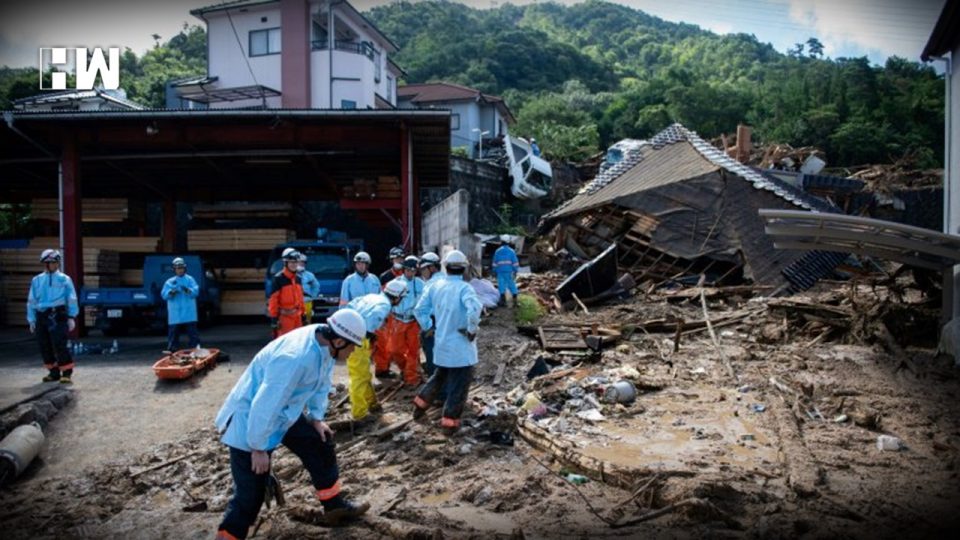Japanese rescue workers searched the ruins of homes today looking for dozens of people still missing after deadly rains that killed more than 200 people.
Operations were under way to dig out and clear up after the devastating floods and landslides that engulfed entire neighbourhoods.
But with around 60 people still feared missing, local authorities said they would continue searching house by house looking for survivors, or victims.
“The critical 72 hours have passed,” acknowledged Mutsunari Imawaka, an official with Okayama prefecture, one of the worst-hit regions.
“But we will continue our search believing there are still survivors,” he told AFP.
He said at least 18 people were missing in Okayama alone, and that several thousand people were checking houses across the region.
Television footage showed dozens of rescuers, including troops, removing massive rocks with mechanical diggers from houses buried in landslides.
Rescuers were also manually shovelling dirt to search for missing people.
The rains are the deadliest weather-related disaster in over three decades in Japan, and the size of the death toll has raised questions about whether authorities were sufficiently prepared.
Government spokesman Yoshihide Suga said the death toll from the disaster reached 201.
“Since a lot of people are still unaccounted for, we are carrying out rescue operations under a policy that saving lives is the top priority,” Suga told reporters.
“Being determined to do whatever we can do as a government, we want to continue tackling restoration and reconstruction in the disaster zone,” he added.
On Wednesday Suga said there would be a review of disaster management policies.
“In recent years we have seen damage from heavy rains that is much worse than in previous years,” he said.
“We have to review what the government can do to reduce the risks.” Prime Minister Shinzo Abe, who cancelled a foreign trip as the death toll rose this week, brushed aside criticism of the response during a trip to Okayama yesterday.
“We have done our best since the disaster happened,” local media quoted him as saying.
Today, he pledged to ramp up help for affected areas and said the government had secured around 71,000 temporary homes for evacuees.
“Looking ahead, as we are expecting a massive amount of disaster-generated waste, I plan to send a team to each prefecture to support” clean-up efforts, Abe said, according to footage of a morning meeting broadcast on local television.
The government has already said it will set aside around 20 million for the relief effort and Abe said there would be financial support for local governments to help with the reconstruction effort.
Abe, who is expected to visit another disaster-affected area on Friday, said the government would “do everything we can so that people will not have to continue living in uncomfortable situations in shelters”.
Around 10,000 people whose homes were buried by landslides or submerged in flood waters are still in shelters.
Even some of those whose homes were not destroyed were struggling with water and electricity shortages.
Military vehicles were being used to bring drinking water to areas without supplies, and a steady stream of volunteers were signing up to help the clean-up operation or offer donations.
The scale of the disaster means the process of returning to normal life will be slow, officials said.
“We don’t know how long it will take for the recovery,” said Okayama official Imawaka.
“The roads and water systems are damaged, so it’s hard to predict at this moment.” And authorities warned against the ongoing risk of landslides, with rain forecast in some areas today, as well as heatstroke in other places where temperatures approached 35 degrees Celsius.
As an independent media platform, we do not take advertisements from governments and corporate houses. It is you, our readers, who have supported us on our journey to do honest and unbiased journalism. Please contribute, so that we can continue to do the same in future.

